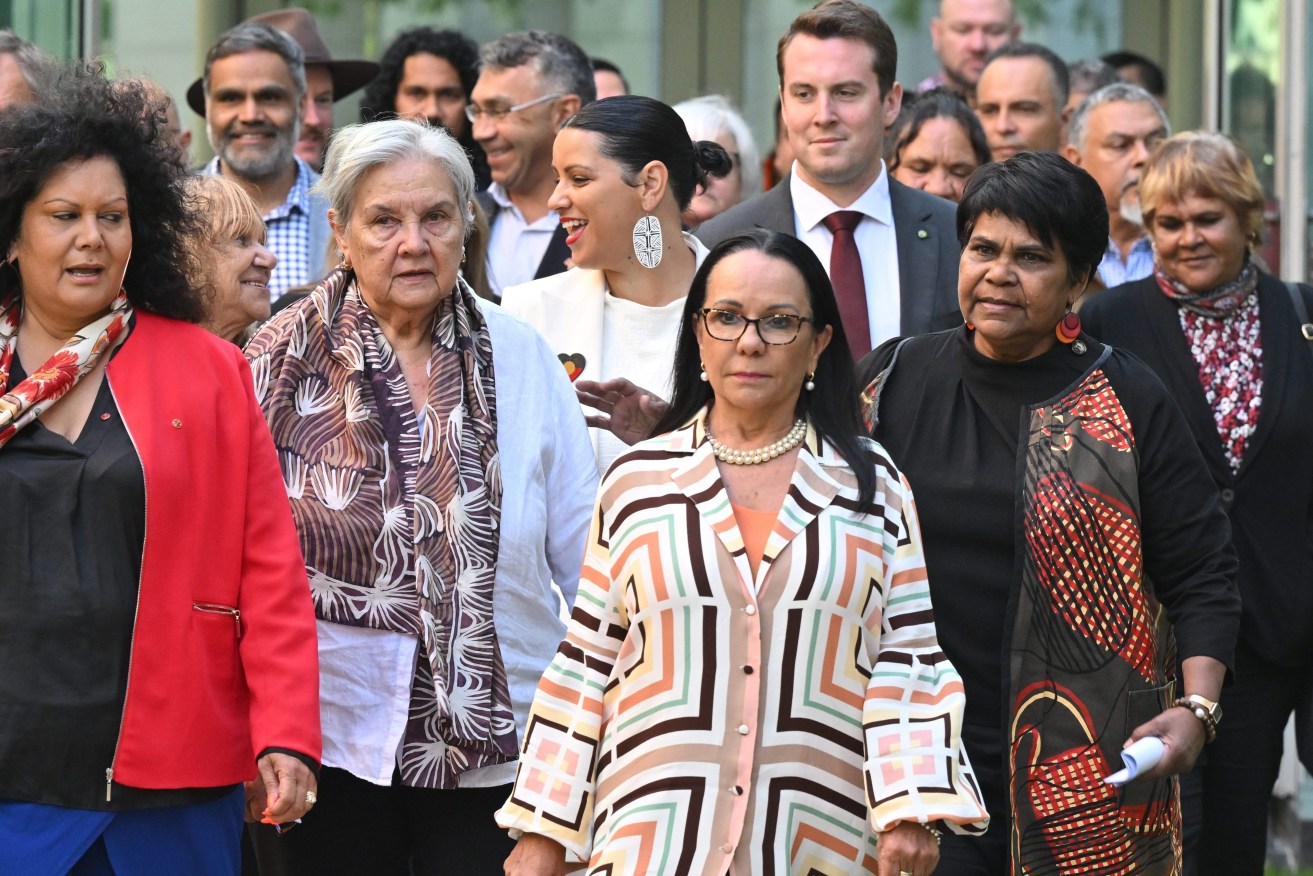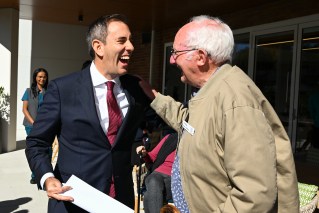Voice becomes a whisper as ‘yes’ vote trailing in all but two Australian states
Support for a constitutionally enshrined Indigenous voice appears to have dropped below 50 per cent in every state and remains ahead of the no vote in only two states.

Labor senator Malarndirri McCarthy, Lowitja Foundation Chair Pat Anderson and Minister for Indigenous Australians Linda Burney lead the Voice working group to a press conference. (AAP Image/Mick Tsikas)
The yes case hasn’t secured an absolute majority in any state, a Newspoll demographic analysis published by The Australian on Monday suggested.
If found that the people most likely to support the voice were higher-income earners, university educated, renters and the young.
Those opposed to the voice included voters with no tertiary education, retirees, mortgagees and people who owned their home outright.
The article said that while the race was still close, the referendum based on current attitudes would fail to meet both requirements of a referendum.
For the referendum to succeed, a national majority in the affirmative and a majority of the six states is required.
An analysis in April, before the final wording of the referendum was settled, had showed majority support in every state but Queensland.
The latest analysis showed the yes vote nationally at 43 per cent when averaged over Newspoll surveys between May and July this year, with the no vote at 46 per cent.
The yes case now leads in only NSW and South Australia, is tied with the no vote in Victoria and trails in Western Australia, Queensland and Tasmania.
Those most opposed to the voice lived in Queensland, followed by WA then Tasmania.
Victoria was tied, with SA the most supportive and NSW not too far behind SA.
The 18-34 year olds were 62 per cent in favour compared to 27 per cent behind the no case.
This was reversed for those aged over 65, with 64 per cent against and 28 per cent in favour.
Men were much more inclined to vote no than women.
The date of the referendum is expected to be announced within weeks.
The demographic analysis was conducted on Newspoll surveys taken between May 31 and July 15 based on a sample size of 5417 interviews with voters across the country.












